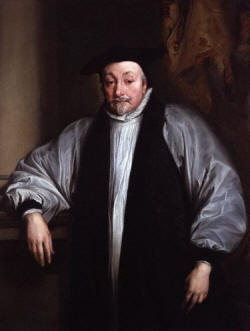

Queer Places:
University of Cambridge, 4 Mill Ln, Cambridge CB2 1RZ, UK
Harvard University (Ivy League), 2 Kirkland St, Cambridge, MA 02138
 Thomas Shepard (5 November 1605 – 25 August 1649) was an English, afterwards American Puritan minister and a significant figure in early colonial New England.
Puritan minister Thomas Shepard was born in England and reached Massachussetts
in 1635; he assumed responsability for the church at Newtown (Cambridge) the
following year. An active and influential religious leader, Shepard was
involved in conversion of the Indians and supervised the first Indian mission
in Cambridge, established by John Eliot. Shepard was not above criticizing his
own moral failings. In passages from his autobiography, he describes same-sex
incidents.
Thomas Shepard (5 November 1605 – 25 August 1649) was an English, afterwards American Puritan minister and a significant figure in early colonial New England.
Puritan minister Thomas Shepard was born in England and reached Massachussetts
in 1635; he assumed responsability for the church at Newtown (Cambridge) the
following year. An active and influential religious leader, Shepard was
involved in conversion of the Indians and supervised the first Indian mission
in Cambridge, established by John Eliot. Shepard was not above criticizing his
own moral failings. In passages from his autobiography, he describes same-sex
incidents.
Shepard was born in Towcester, Northamptonshire.[1] His devout mother died when he was four and he lived a difficult life under his stepmother. His father died when he reached ten, at which point he lived with his grandparents and later an older brother, whom he held in high and grateful regard. A schoolmaster ignited in him a scholarly interest, which ultimately led to entry into Emmanuel College in Cambridge University at the age of fifteen.[2] He accounts in his autobiography that he lived a dissatisfied and dissolute life, which led him to pray out in a nearby field, at which point he underwent the beginnings of a conversion experience. In 1627 he became assistant schoolmaster at Earls Colne Grammar School in Earls Colne, Essex. He became a minister whose sermons and Puritan ways drew the ire of Church of England Archbishop William Laud, and he was forbidden to preach. Following the death of his eldest son, he left England in 1635 with wife and younger son on a difficult voyage for Massachusetts in colonial America where he became minister of one of the leading churches in the colonies, the First Church in Cambridge (Congregational, currently UCC), Massachusetts and also of Harvard University, then a very new school charged with training men for the Christian ministry in the Puritan colonies of New England. From 1637 to 1638, during the Antinomian Controversy, he sat with the other colonial ministers during both the civil and church trials of Anne Hutchinson, and was a very vocal critic of hers during the latter.[3] His wife died shortly after his arrival in New England, as did his second wife and other children, though he framed these experiences, if not without difficulty, into the perspective of his theology. Along with John Allin and John Eliot, he was involved in preaching to the native peoples on New England.[4] Shepard died of quinsy, a Peritonsillar abscess, which is a complication of tonsillitis at the age of 44.
Shepard was regarded as one of the foremost Puritan ministers of his day, esteemed in the company of individuals like Richard Mather and John Cotton. He took special interest in Puritan ministry to the Massachusetts Native Americans. His written legacy includes an autobiography and numerous sermons, which in some measure of contrast with others of his day, tended to accent God as an accessible and welcoming figure in the individual life. Today a plaque at Harvard University, in the words of Cotton Mather, records that it was in consideration of the salutary effect of Shepard's ministry that the college ultimately came to be placed in "Newtowne", known today as Cambridge, Massachusetts. While Thomas Shepard ministered nearly a century and a half before the Congregational/Unitarian split, both First Parish in Cambridge and First Church in Cambridge Congregational consider him to be their founding minister. While it is difficult to judge in a modern context with which church Shepard would have maintained an affiliation, it is safe to say that his trinitarian beliefs would have aligned him with the Congregationalists not the Unitarians. Thus any portrayal of Shepard must take into account his theological convictions when placing him in a congregation's lineage that was merely a permutation of dissatisfied Unitarian Congregationalists. Three of Shepard's sons followed him into the ministry; Thomas Shepard II, Samuel Shepard, and Jeremiah Shepard. Thomas Shepard II was an ancestor of U.S. Presidents John Quincy Adams and Franklin D. Roosevelt.
My published books:
Improper Bostonians Lesbian and Gay History from the Puritans to Playland By History Project Staff · 1998